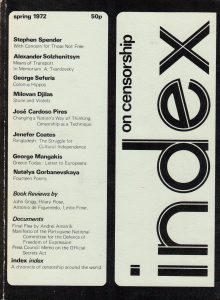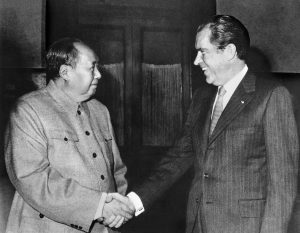8 Mar 2023 | Afghanistan, News and features, United Kingdom
This article was published to mark International Women’s Day 2023
Journalists in Afghanistan are facing a very bad situation. The media has been censored. There are many restrictions on women journalists. I have received information that the few female journalists still working in the media are paid so little and they cannot meet their family expenses. Journalists cannot carry out their jobs properly due to fear of the Taliban. They write and publish what the Taliban want.
The number of female journalists in the media is decreasing day by day and they are forced to leave the country. Life is hard in neighbouring countries, but they cannot stay at home.
Hundreds of journalists are staying with their families in Pakistan. I am in contact with many that face a dangerous, unknown fate. Most Afghan journalists’ visas have expired and they are threatened with deportation and imprisonment. They also face economic problems. They have spent the money they brought with them and now cannot afford to eat. The increase in prices in Pakistan and the lack of work permits for Afghan journalists has made life difficult for them and their families. They are very willing to sell their kidneys to cut their daily expenses. If Afghan journalists stay here for a long time, more problems will arise and their freedom will be threatened. They can’t even get treatment in the hospitals because they need visas which most journalists don’t have.
All the doors are closed in front of us. I am asking the British government to open them up. The UK promised to help us and they still can. We once again request that the British government fulfil the promises it has made to Afghan journalists and other people at risk.
18 Mar 2022 | 50 years of Index, China, History, Ireland, Magazine, News and features, Philippines, United Kingdom, United States, Volume 51.01 Spring 2022 Extras
[vc_row][vc_column][vc_column_text]

The first issue of Index on Censorship magazine, in March 1972.
You may have heard that the 70s were different. In 1972, when the first issue of Index magazine was launched, no one knew that 20 years later there would be an influential economic bloc called the European Union. The Beatles’ had only just split. The World Trade Center in New York was being built, while Sir Edward Heath was the prime minister of the United Kingdom.
Fifty years on and some things remain. Queen Elizabeth’s reign goes on and celebrates its 70th anniversary in 2022. Dictatorships and censorship, which should be trapped in history books, continue to torment the lives of many. And as a result, Index on Censorship remains vigilant, defending freedom of expression and giving voice to those who are silenced.
As we celebrate our 50th anniversary, we go back in time and remember the remarkable events that happened in 1972.[/vc_column_text][vc_custom_heading text=”1″][vc_column_text]January 30th: British soldiers shoot 26 unarmed civilians during a protest in Derry, Northern Ireland. Fourteen people were killed on this day known as “Bloody Sunday”. [/vc_column_text][vc_custom_heading text=”2″][vc_column_text]February 1st: Paul McCartney and the Wings release “Give Ireland back to the Irish” in the UK. It would be banned by the BBC, nine days later. [/vc_column_text][vc_custom_heading text=”3″][vc_column_text]February 5th: Airlines in the United States begin to inspect passengers and baggage. Tough to imagine that people traveled without any surveillance. [/vc_column_text][vc_custom_heading text=”4″][vc_column_text]February 17th: British Parliament votes to join the European Common Market. In 2020, the United Kingdom would leave the European Union. [/vc_column_text][vc_custom_heading text=”5″][vc_column_text]February 21st: Richard Nixon becomes the first US president to visit China, seeking to establish positive relations in a meeting with Chinese leader Mao Zedong, in Beijing.

Mao Zedong and Richard Nixon during Nixon’s historical visit to China in 1972. Photo: Ian Dagnall/Alamy
[/vc_column_text][vc_custom_heading text=”6″][vc_column_text]March 15th: The Godfather, starring Marlon Brando and Al Pacino, premieres in New York. It wins Best Picture and Best Actor (Brando) at the 45th Academy Awards.

Al Pacino and Marlon Brando in the Godfather. The first film of one the most successful franchises of all time was released in 1972. Photo: All Star Library/Alamy
[/vc_column_text][vc_custom_heading text=”7″][vc_column_text]June 18th: British European Airways Trident crashes after takeoff from Heathrow to Brussels, killing all 118 people on board. [/vc_column_text][vc_custom_heading text=”8″][vc_column_text]July 1st: Feminist magazine Ms, founded by Gloria Steinem, publishes its first issue, with Wonder Woman on the cover.[/vc_column_text][vc_custom_heading text=”9″][vc_column_text]August 4th: Uganda dictator Idi Amin orders the expulsion of 50,000 Asians with British passports.
[/vc_column_text][vc_custom_heading text=”10″][vc_column_text]September 4th and 5th: 11 members of the Israeli Olympic team are murdered by a Palestinian terrorist group in the second week of the 1972 Olympics in Munich.[/vc_column_text][vc_custom_heading text=”11″][vc_column_text]September 21st: Philippines President Ferdinand Marcos declares martial law. In 2022, his son Ferdinand ‘Bongbong’ Marcos is running for president. [/vc_column_text][vc_custom_heading text=”12″][vc_column_text]October 13th: A flight from Uruguay to Chile crashes in the Andes Mountains. Passengers eat the flesh of the deceased to survive. Sixteen people are rescued two months later.[/vc_column_text][vc_custom_heading text=”13″][vc_column_text]November 30th: BBC bans “Hi, Hi, Hi”, by Paul McCartney and The Wings, due to its drug references and suggestive sexual content. [/vc_column_text][vc_custom_heading text=”14″][vc_column_text]December 7th: Apollo 17 is launched and the crew takes the famous “blue marble” photo of the entire Earth.

The earth seen from the Apollo 17 spacecraft. Photo: NASA/Alamy
[/vc_column_text][vc_custom_heading text=”15″][vc_column_text]December 28th: Kim Il-Sung takes over as president of North Korea. He’s the grandfather of the country’s current leader, Kim Jong-un. [/vc_column_text][vc_custom_heading text=”16″][vc_column_text]December 30th: US President Richard Nixon halts bombing of North Vietnam and announces peace talks in Paris, to be held in January 1973. [/vc_column_text][/vc_column][/vc_row]
16 Oct 2012 | Middle East and North Africa
Saudi Arabia has said it is “insulted” by the announcement of a UK Parliamentary Foreign Affairs Committee inquiry into the UK’s relationship with the Gulf states, in particular Saudi Arabia and Bahrain. In a veiled threat to key trade deals, the country warned that it may “re-evaluate their country’s historic relations” with the UK in response. The inquiry has asked for responses on “how the UK can encourage democratic and liberalising reforms in Saudi Arabia”.
This probe was first announced unofficially by Ann Clwyd MP at an Index on Censorship Bahrain briefing in early September. Attending the briefing on human rights abuses and stalled efforts of reform was Maryam al-Khawaja, Acting President of the Bahrain Center for Human Rights (BCHR). Highlighting censorship and human rights abuses in her country, al-Khawaja said “the UK is to Bahrain what Russia is to Syria”.
In the briefing she pointed out that:
The UK government has made countless pledges to push on Bahrain to implement supposed reforms, but has yet to push forcefully on its partner where it counts…the country continues to perpetuate flagrant human rights violations.
The UK Foreign Office (FCO) regularly refers to Saudi Arabia and Bahrain as “close friends”, “key allies” and “valuable trade partners”. Just yesterday as the inquiry furore was made public the FCO said: “Saudi Arabia is a key strategic partner in the region and one of the closest friends and allies”.
Clearly it is politically expedient to ignore the way Saudi Arabia ruthlessly constricts the freedom of its female population, censors much criticism of the ruling authorities and regularly breaks international human rights law in the way it treats its citizens. Bahrain, another ally, breaks up peaceful protests with teargas, birdshot and police brutality, locking up its citizens for such dreadful crimes as tweeting and “insulting the King”.
Throughout the recent uprisings in North Africa and the Middle East, the UK government openly supported protests and revolutions that toppled dictators in Egypt, Tunisia and Libya. However when the Bahraini people gathered at the Pearl Roundabout in Manama to voice their discontent they were met with a brutal crackdown by the Bahraini authorities aided by Saudi forces. Despite promises of reform this crackdown continues complete with numerous injured protesters, political prisoners, and claims of torture.
And the punishment by the UK government to Saudi Arabia and Bahrain? The UK signs a defence agreement with the Gulf Kingdom to “bolster Bahrain’s security with regards to its regional standing, as well as its internal stability” and remains silent on the issue of human rights abuses in the country.
Index calls upon the UK Foreign Office to live up to its international commitments on human rights and to put real and adequate pressure on Saudi Arabia and Bahrain to reform.
Index and the BCHR both welcome the announcement of this week’s inquiry and plan to submit evidence.
Annette Fisher is international programmes manager at Index
Read more:
Index’s spotlight on Bahrain on the anniversary of the 14 February unrest
15 Mar 1993 | Magazine Editions, Volume 22.03 March 1993
[vc_row][vc_column][vc_column_text]

Belarus and Ukraine, the March 1993 issue of Index on Censorship magazine.
By Andrew Graham Yooll
Britain has the best press in the world; or, if not the best, near enough the top. Its variety is rich and, even in its tabloid sector, there is a sense of public service as well as much entertainment and good humour. This opinion is offered as a footnote to the publication of Calcutt II (Review of Press Self-Regulation, Sir David Calcutt QC, HMSO, London, January 1993) and to the recent hearings of the House of Commons Heritage Committee.
The British press is being cowed by the leaders and spokesmen of a government operating in a virtual one-party system, a government which has been caught lying on several occasions and whose actions smack of increasing corruption. It is quite natural that, in such circumstances, the only valid existing opposition, the print media, should come under pressure.
Encouragement, from within government, of discussion about the possibility of statutory restrictions on press freedom reflects the fact that the government is not satisfied with its already very substantial powers. Any government official will, of course, deny this; the pressure will be presented as a desire to protect privacy. Much of the press can be accused of turning Tory at election time and the government can be expected to want to keep its support after the results are in. But the search for year-round and unwavering submission is now going too far.
If recent circumstances have even cowed — according to his own statement to the Heritage Committee on 21 January — the ineffably brash Sun editor, Kelvin MacKenzie, the threats must be serious. The Sun is a paper some may not like, but its existence symbolises the rich mix that is British society and the British media — and its outrages have a redeeming cleverness.
The government has used the time honoured practice of ‘threatening the press by report’. The ‘report’ is a mechanism for keeping Oxbridge chums employed and for frightening the general public; it has very little to do with democracy and everything to do with political expediency: its findings can be entirely ignored, or only some of its recommendations implemented. Following — indeed preceding — publication of then latest report by David Calcutt QC, Prime Minister John Major rejected the idea of statutory controls on the press, and a privacy law is unlikely because it is too complex to produce; but, now that the threatening document is actually in print, departments of government can select clauses piecemeal and threaten indefinitely.
The press obviously deserves to be blamed for many of its present problems, principally for wringing its hands and indulging in internecine sniping while the threats were mounting. There was no lack of warnings. The New York-based Committee to Protect Journalists, in its 1987 report Attacks on the Press, published in March 1988, ranked the United Kingdom among ’13 Cases of Concern’ — alongside Bangladesh, Chile, Haiti, Kenya, and others. The CPJ’s warning, which followed the British government’s attempts to restrict the press in the Spycatcher case {Index 2/1988 p3) seems to have gone unheeded by the British press.
Then, at the time of Calcutt’s first report published in June 1990 (Index 7/1990, pp2-3), the Association of British Editors organised a seminar at which the results of a recent MORI poll on public attitudes to the press were discussed. The attitudes, mainly negative, came from just 813 adults, in a country that buys over 10 million newspapers every day. The poll’s findings were invoked by three MPs who proceeded to chastise some of Britain’s leading journalists. Instead of calling the MORI poll rubbish and telling the MPs to take a walk, the editors, in a sad little scene, proceeded to blame one another, — and most of all The Sun — for their poor image. They even damned the Sunday Sport, a comic (not represented at the meeting) which can by no means be considered part of the ‘press’, since it has never pretended to be a supplier of information, news or comment — nor even much sport.
Thus the United Kingdom arrived at 1992, the ‘Annus Horribilis‘, and another MORI poll, this time entitled Public Attitudes to the Press, almost as negative as the first, and based on a sample of 1,061 adults.
And now there is a bill introduced by Clive Soley MP, a Labour sepoy for the Conservative government, which seeks to rule on accuracy in the press in the name of protecting its freedom. Soley’s ‘Freedom and Responsibility of the Press’ bill had its second reading on 29 January. Mr Soley is a man of good intentions whose dog’s dinner of a draft will be used by government, any government, to enact those sections which best serve its own convenience. The one thing the press does not need is protection by laws. Press laws are a recourse of dictators.
The only proposal that could be salvaged for the present times, the ‘Right to Know’ bill, submitted by Mark Fisher MP, Labour, is a noble, catch-all freedom of information bill packed with good intentions and therefore worthy, but not worth hoping for. Fisher’s bill got its second reading on 19 February. (Index on Censorship supports it.)
The press should be subject only to the laws of the land; it has no need of special regulation. Journalists are no different from ordinary citizens, do not claim to be, and should not be considered so.
With hindsight, it is clear that the political, legal and bureaucratic Establishment cares not a whit what the press uncovers under the sheets of Charles Windsor or Diana Spencer, or whether Sarah Ferguson is pear- or plum-shaped.
[/vc_column_text][/vc_column][/vc_row][vc_row][vc_column width=”1/4″][vc_icon icon_fontawesome=”fa fa-quote-left” color=”black” size=”xl” align=”right”][/vc_column][vc_column width=”3/4″][vc_column_text]
The fact that the First Family’s privacy is invoked is largely to satisfy the yappers on the Tory back-benches’ and a few pseudo-monarchists in Her Majesty’s Permanent Opposition. But by appearing to plan to close the bedroom doors of the Royal Family, access to information about elected members of government, and any attempt to hold them accountable, is firmly barred. And therein lies the substantial cause and motive force of the Calcutt reports.
[/vc_column_text][/vc_column][/vc_row][vc_row][vc_column][vc_column_text]
If anything is wrong with Britain it is the one-party system that has overtaken the country since 1979. The press is one of the best things left in Britain when all about it is in decline. More important, it is the only democratic opposition voice remaining. If anything, the press should be even more intrusive into the affairs of a First Family which, by arrangement with former Prime Minister Margaret Thatcher in July 1990, upped its bill to the UK taxpayer to £7.9 million per annum.
Of course, there will be casualties caused by an intrusive press, victims not only of The Sun or one of the other tabloids, but also of the broadsheets. The Press Council’s successor body, the Press Complaints Commission, was set up in 1991 to ensure that the press would be concerned about tidying itself up; its function must be strengthened but no other imposition should be necessary.
There can be little to be proud of in old stone piles which nobody can live in, or in government by anachronism. But the press in Britain is something the British can, and should, still be proud of. The variety to be found in the dottiness of Peregrine Worsthorne (Sunday Telegraph) or Julie Burchill (Mail on Sunday), the genius of Hugo Young (Guardian) or Neil Ascherson (Independent on Sunday), the wit of Bernard Levin and Matthew Parris (Times), and the fruity invective of Keith Waterhouse (Mail), as well as in the stimulating contributions of many, many others, including the entertaining outrages of Kelvin MacKenzie’s staff (Sun), are part of the fabric of a society that is still admired and envied all over the world — for a few things. To weaken any part of the press will be a serious loss.
[/vc_column_text][/vc_column][/vc_row][vc_row][vc_column width=”1/3″][vc_column_text]The winter 2017 Index on Censorship magazine explores 1968 – the year the world took to the streets – to discover whether our rights to protest are endangered today.
With: Ariel Dorfman, Anuradha Roy, Micah White[/vc_column_text][/vc_column][vc_column width=”1/3″][vc_single_image image=”96747″ img_size=”medium”][/vc_column][vc_column width=”1/3″][vc_column_text]In print, online. In your mailbox, on your iPad.
Subscription options from £18 or just £1.49 in the App Store for a digital issue.
Every subscriber helps support Index on Censorship’s projects around the world.
SUBSCRIBE NOW
[/vc_column_text][/vc_column][/vc_row]





